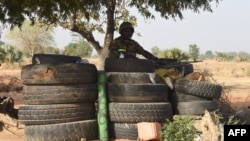Decreed in June 2022 by President Faure GnassingbÃ, the state of emergency ended a few weeks ago, after a first extension of six months in September.
On Thursday, Togo's parliament voted to extend the measure for another year.
"It's a choice, because we have to protect our defense and security forces," a Togolese official told AFP on condition of anonymity.
A state of security emergency allows security forces and local authorities more flexibility to take urgent measures to combat threats from militant groups.
Minister of Security General Damehame Yark said that "the situation remains worrying" in the far north of the country, "in view of the persistence of new attempts, most of them valiantly repelled by our defense and security forces".
Togo is a small country in West Africa sandwiched between Benin in the east, Ghana in the west and Burkina Faso in the north.
Since November 2021, it has been subject to attacks in the far north, near the border with Burkina Faso, where jihadist groups control large parts of that country.
Since August 2022, neither the government nor the army has communicated on the security situation in the far north.
The Togolese opposition and civil society organizations have repeatedly denounced the "silence" of the authorities.
"The government must communicate to situate us on the ground realities, which will allow the Togolese to take stock of the security situation in the north of the country," Gerard Adja, one of the leaders of the Dynamique Monseigneur Kpodzro (DMK), a group of opposition political parties and civil society organizations, told AFP.
"Not doing it in time and continuing to practice the governance of lies constitutes a high risk for all of us."
Ghana, Togo, Benin and Ivory Coast are increasingly cooperating and sharing intelligence in a bid to better combat the threat from across their northern borders.




